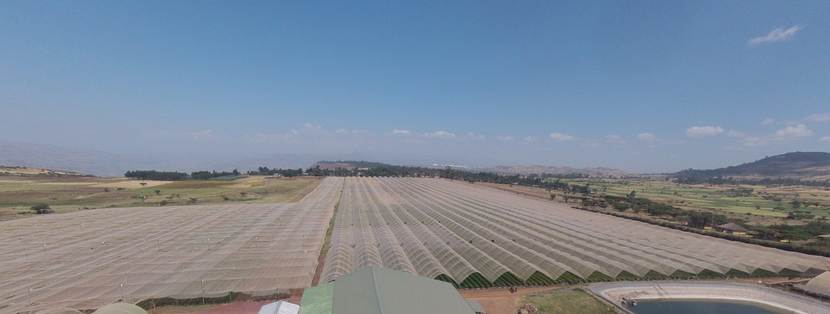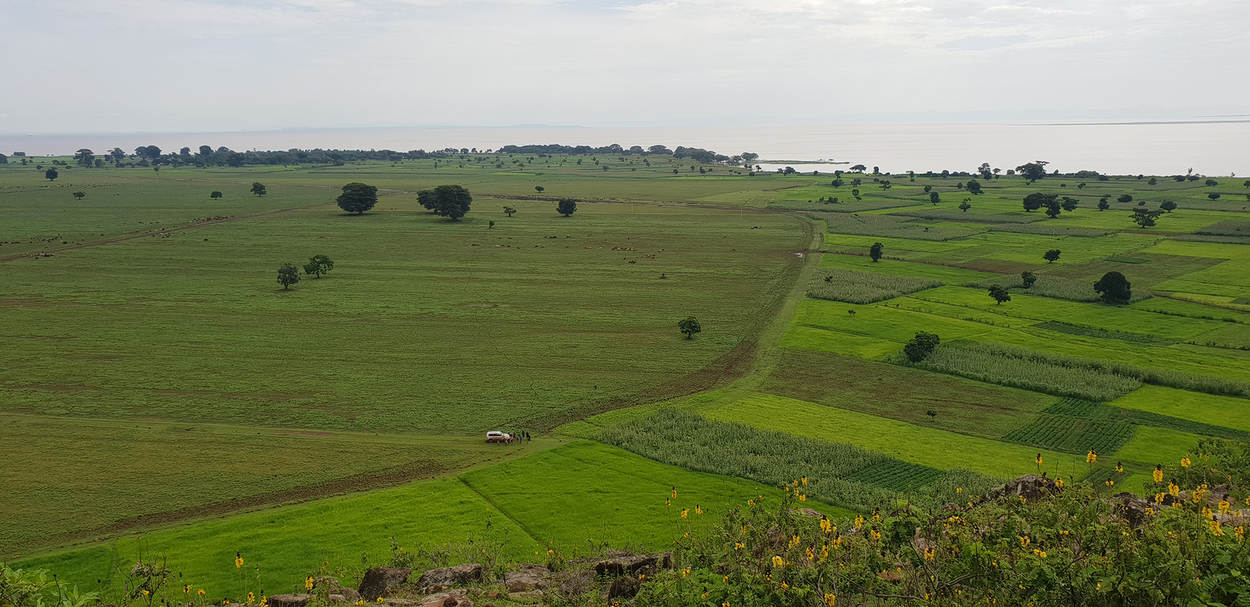Development Kunzila improves food security Ethiopia
Five Dutch floriculture companies will develop a sustainable large-scale horticulture project in Kunzila, Ethiopia, with the support of RVO (Netherlands Enterprise Agency) and the Netherlands Embassy in Addis Ababa. The project will set an example for food-producing farmers: it can enhance the productivity and food security with positive impact on the local community, nature and climate.
The Dutch flower industry is very well represented in Ethiopia. A consortium of Dutch flower companies is at the verge of expanding their production area with another 500 ha in Kunzila to grow roses, summer flowers and cuttings. Through multi-stakeholder dialogues the local population is involved in the development of the surrounding area. An RVO team, coordinates between the investors and the local communities to ensure that the proposed investment will have a positive impact on inclusive development, food security, market access and climate resilience and does not lead to violations of human and land rights. One of the companies receives financing through the Dutch Good Growth Fund.

The Kunzila project is still in its development phase, but has the potential to be an example for future large-scale agricultural investments. Ethiopia is full of business opportunities for investors from the Netherlands, and full of possibilities to have a positive impact on nature and community. Kunzila combines these opportunities to create a win-win situation for the Netherlands and Ethiopia; an initiative that fits well within the Dutch policy priorities for developing countries.
Market access improves
The new investments will generate new infrastructure, like asphalt roads and electricity, substantially improving market access for the local community. The local farmers will also get easy access to a large commercial network for better seeds and agricultural inputs.
By implementing drip irrigation, farmers will be more self-sufficient in water use and be able to harvest not only once, but also twice or three times a year. Additionally integrated pest management (IPM) will be introduced; a technique that will make the use of chemical pesticides redundant.
Ideal location for floriculture
Kunzila, the location of the investment project, is situated next to Lake Tana, in the West of Ethiopia. Lake Tana is the largest lake of Ethiopia. The ground is very fertile and an international airport is close by. These factors in combination with the favorable climate make the location ideal for floriculture.
Kunzila's fertile ground and favorable climate make the location ideal for floriculture.
Climate change
Ethiopia is vulnerable for climate change. A large part of the population lives in the rural areas and depends on small-scale agriculture and rainwater. The consistent drought can be disastrous for the small-scale farmers, as they often have no alternative for their income.
Besides these humanitarian consequences, changes in the rain patterns have a big impact on the local economies. Climate change and harmful agricultural practice lead to land degradation and desertification. Land degradation frees large amounts of CO2, which causes even more problems.
The Dutch agricultural sector has a large presence in Ethiopia with an ample amount of experience in climate smart agriculture, so the Netherlands is in a unique position to contribute to a sustainable solution to these issues.
Circular Economy
One of the Dutch agricultural sector’s expertise is circular agriculture. Compost of flower growers will be used to improve the ground structure of the surrounding farmers. During the wet season, the Dutch entrepreneurs can harvest rainwater and waste water that will be purified by helophyte filters, so the local farmers can use this water for irrigation of their land in the dry season.
These techniques and other agricultural expertise will be shared in a center of expertise, which will be initiated by the Dutch entrepreneurs to share information about farming techniques like integrated pest management, responsible land use and fertilization for optimal productivity.
Positive impact on food security
By improving seed quality and the implementation of drip irrigation, Ethiopian farmers in the surrounding community will be able to double their productivity. They will be able to harvest more frequently and the chances of a good harvest will increase. Additionally they will be less dependent on the weather. These advantages and the improved infrastructure will enable farmers to sell their products on the local and possibly on the international market.
Opportunities for Dutch companies
By the improved crop protection and the circular practices by the investors and the surrounding area, the whole area will be more sustainable. Land degradation can be prevented and the water quality of Lake Tana can be preserved. This will mitigate the effects of climate change and make the land more climate resilient.
